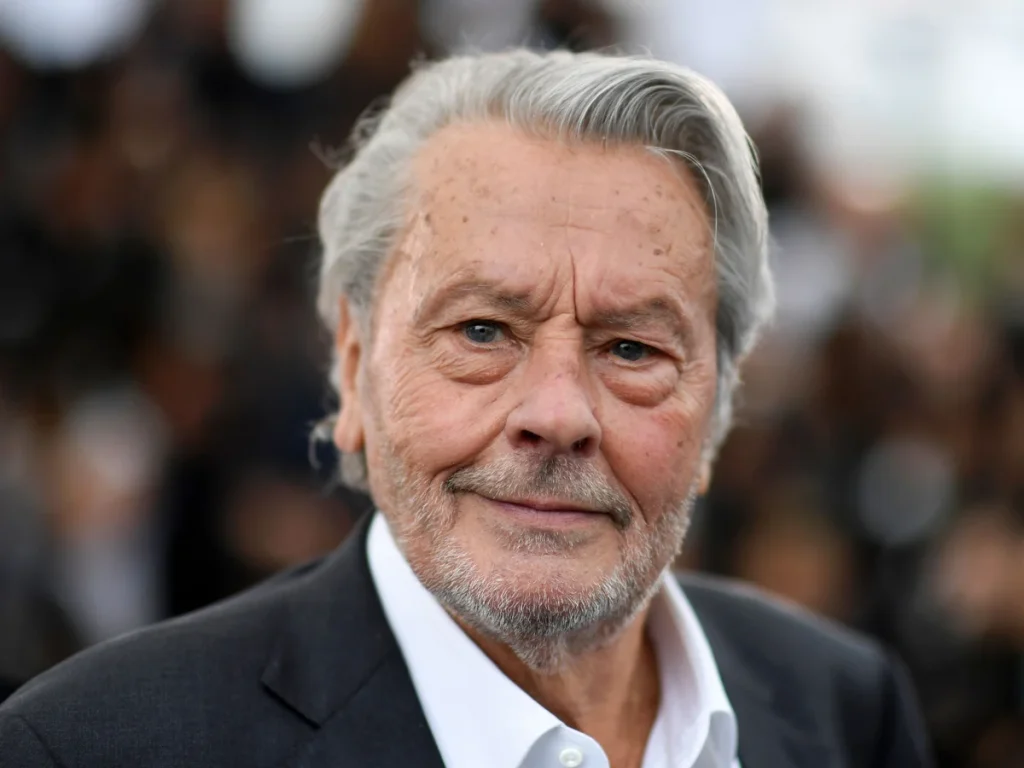French film legend Alain Delon, a divisive star known to some as a sex symbol and to others an egotistical chauvinist, has died at the age of 88, his children annnounced Sunday in a statement to AFP.
“Alain Fabien, Anouchka, Anthony, as well as (his dog) Loubo, are deeply saddened to announce the passing of their father. He passed away peacefully in his home in Douchy, surrounded by his three children and his family,” said the statement, which came after months of public family feuding over the star’s weakening health.
The actor, known for his roles in classics “Purple Noon” (1960) and “Le Samurai” (1967), died at around 3:00 am (0100 GMT), his son Anthony told AFP.
A rarity on the screen since the 1990s, Delon made headlines in 2023 when his three children filed a complaint against his live-in assistant Hiromi Rollin, accusing her of harassment and threatening behaviour.
The siblings went on to wage a public battle in the media and the courts, arguing over the star’s state of health, which included a stroke in 2019.
Delon’s family has asked for privacy following his death.
Ahead of his debilitating stroke, Delon made his last major public appearance on the red carpet to receive an honorary Palme d’Or at the Cannes Film Festival in May 2019.
“It’s a bit of a posthumous tribute, but from my lifetime,” he had said upon receiving the award.
“I am going to leave, but I won’t leave without thanking you,” added the man who had lived out his final years at his home in a village in northeast France, surrounded by high walls, where he planned to be buried not far from his dogs.
“Alain is in a deep, chosen solitude, in another world, in the past with people he very much loved… His malaise has always been present,” his former partner Mireille Dard told AFP in 2015, before the star turned 80.
“The best and the worst, both inaccessible and so close, cold and hot,” fellow 1960s star Brigitte Bardot had described him on his 80th birthday.
Far from a cerebral actor, Delon was considered an instinctive genius. He prided himself on never having worked on his technique, rather relying on charisma.
“He’s not a normal actor, Alain Delon. He’s an object of desire,” said actor Vincent Lindon in a 2012 documentary.
His looks were cinematic gold for filmmakers in the 1960s, playing roles of pretty boy killers and mysterious schemers like in “Purple Noon” — later remade as “The Talented Mr Ripley”.
He went on to set the template for one of Hollywood’s favourite tropes — the mysterious, cerebral hitman — with his staggering performance as the silent killer in Jean-Pierre Melville’s “Le Samurai” (1967).
Directors from Martin Scorsese and Quentin Tarantino to Hong Kong’s John Woo all acknowledge a debt to the inner life Delon gave his stylish killer — although the French actor himself never made it big in Hollywood.
But while he was universally admired, he also faced harsh criticism and judgement.
Some raised issue with his suport for polarising politician Jean-Marie Le Pen, leader of the far-right National Front (later renamed the National Rally), who was in favour of the death penalty and spoke against homosexuality.
Ahead of his 2019 return to Cannes, he faced controversy over his relationship with women, with his sons previously accusing him of domestic violence.
While Delon denied this, he admitted to slapping women who attacked him during quarrels.
The self-described right-winger was also mocked for his ego and habit of talking about himself in the third person.
But fans who adored him will think back to his opening line in the film “Le Samurai”: “There is no deeper solitude than that of the samurai, except that of a tiger in the jungle.”
